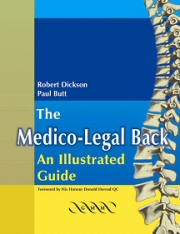8 - Back Pain and Litigation
Published online by Cambridge University Press: 10 December 2009
Summary
INTRODUCTION
Those of us in reasonable health and full-time well-paid employment in the medical and legal professions do not, perhaps, realise how fortunate we are. By contrast, to a young bread winner with a family to support and a mortgage and other financial responsibilities and looking forward to enhanced security in the future, a severe injury resulting in significant symptoms as well as an inability to continue working is a catastrophic event. What would we do if it happened to us and how would we cope physically, emotionally and financially? Clearly, financial compensation from a genuine accident-related disability is entirely appropriate and well deserved, but it is no substitute for normality.
We have always been, and will remain, staunch supporters of the concept that an individual who is damaged deserves compensation. That is why compensation for damages is entirely valid, but such damages do seem to be often unfairly distributed.
THE EXPERT WITNESS
Experts involved in trying to help the medico-legal process should, we think, know something about the matter in hand and demonstrate reasonable clinical experience. Orthopaedic surgeons deal with the surgical aspects of all hard parts of the body, the bones and joints, and the muscles, tendons, ligaments and nerves that work them; that is, all bar the contained soft organs.
- Type
- Chapter
- Information
- The Medico-Legal Back: An Illustrated Guide , pp. 165 - 204Publisher: Cambridge University PressPrint publication year: 2003



